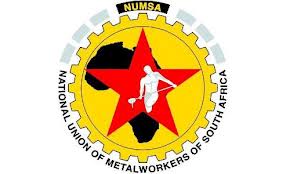The Steel and Engineering Industries Federation of Southern Africa (Seifsa) has withdrawn its latest wage offer after Numsa publicly rejected it on Sunday.
Seifsa offered Numsa a 10% increase in 2014, followed by a 9.5% in 2015 and 9% in 2016. It was made on condition that it would lead to a quick settlement that would see the current damaging industrial action, which has been accompanied by violence in some parts of the country, ended. However, the union rejected the offer demanding an increase of 10% each year for the next three years. Numsa said it is awaiting feedback from Seifsa and will continue the strike in the engineering industry indefinitely. However Seifsa Chief Executive Officer Kaizer Nyatsumba said the federation will not be making a new offer. “We have not promised Numsa to get back to it with a new offer. Instead, we made it clear that we have exhausted our mandate. We also explained, during our meeting with the Numsa leadership yesterday morning, that the final offer made last week – which was intended to end the strike and to see employees back at work this week – failed to accomplish its goal and has since been withdrawn,” Nyatsumba said.Seifsa has now reverted to its previous offer of 10% in 2014 and 9% in 2015 and 2016 respectively. For higher-earning artisans on level A, the offer remains 8% in 2014, 7.5% in 2015 and 7% in 2016.
No follow-up meetings have been schedule between Seifsa and Numsa. “We have made a number of important concessions in these negotiations, but our positions on both matters have never once changed. We have indicated all along that we would not be able to sign any agreement that did not protect employers from the threat of double dipping, with matters which impact on the total cost of employment negotiated both at national level through collective bargaining and subsequently at plant level. It remains critically important for us that we reach a mutually-acceptable agreement on Section 37 of the Main Agreement,” Nyatsumba explained. He added that Seifsa has indicated throughout negotiations that labour brokers were a matter for labour to raise with government, and not with employers.






